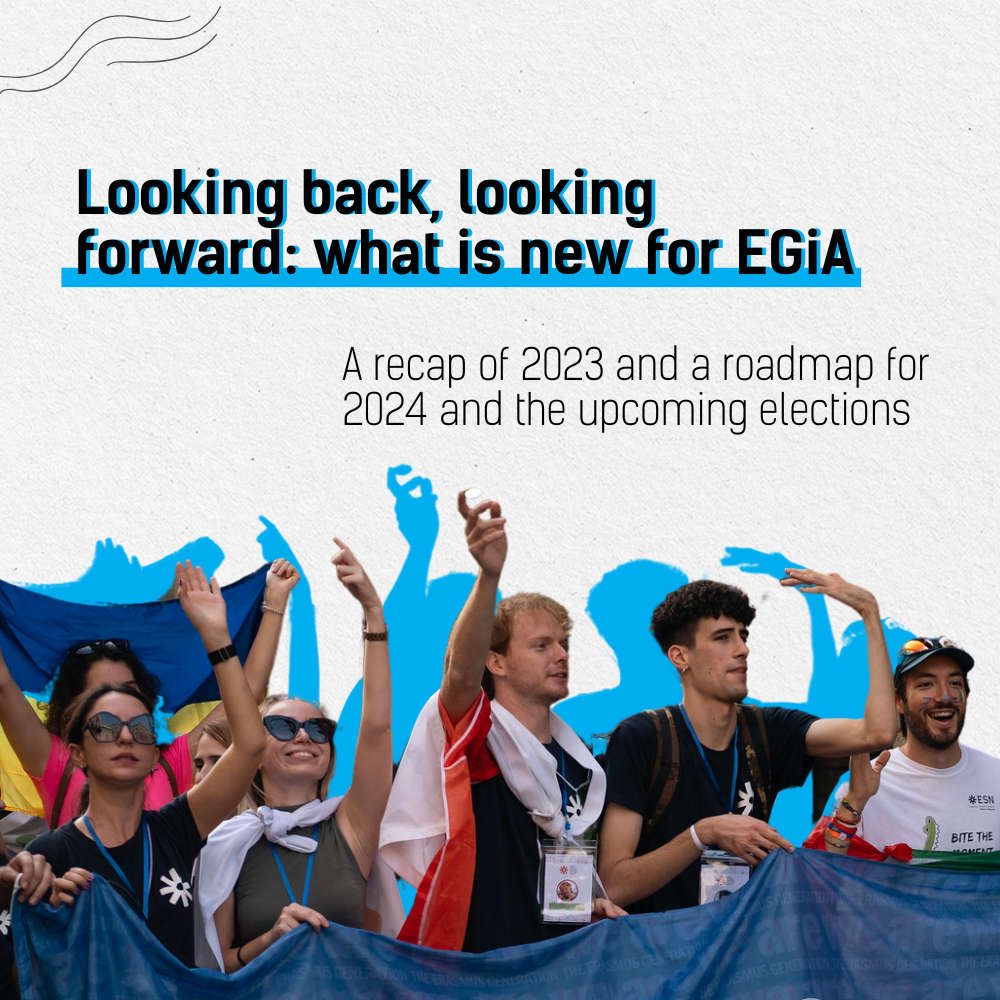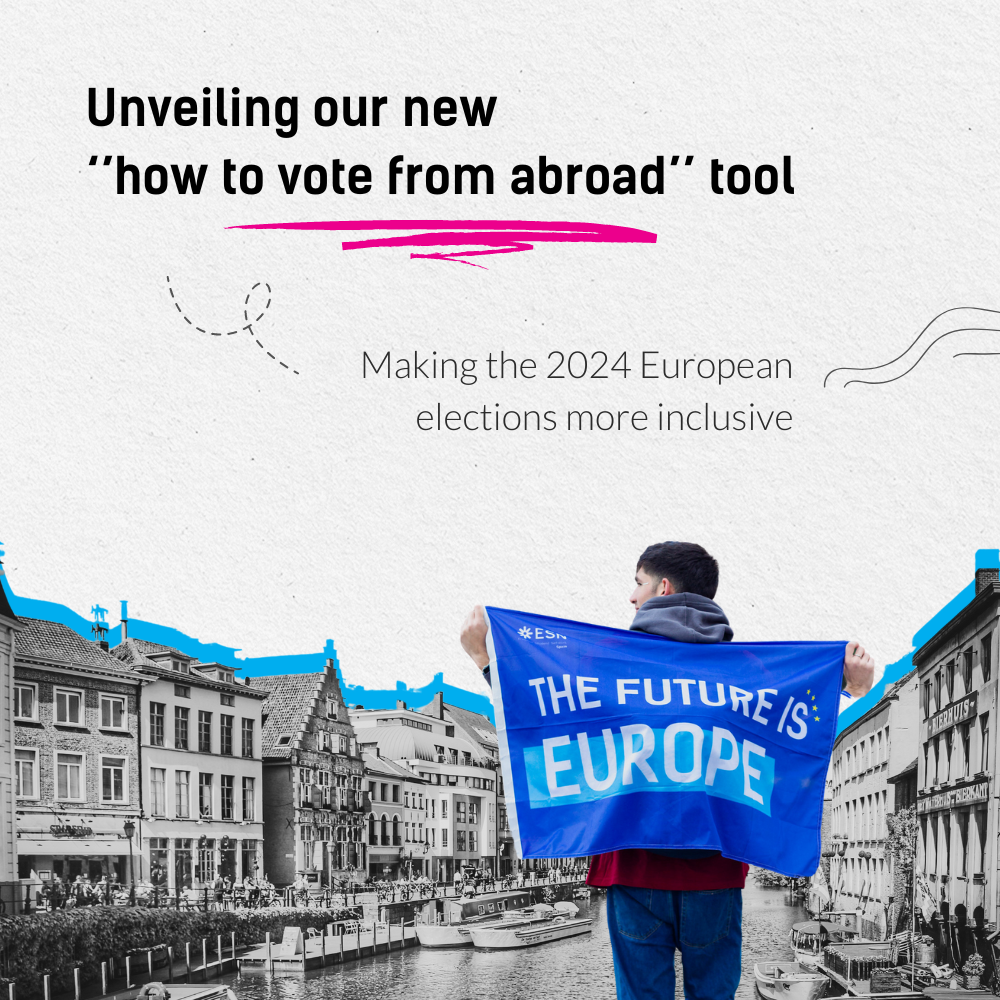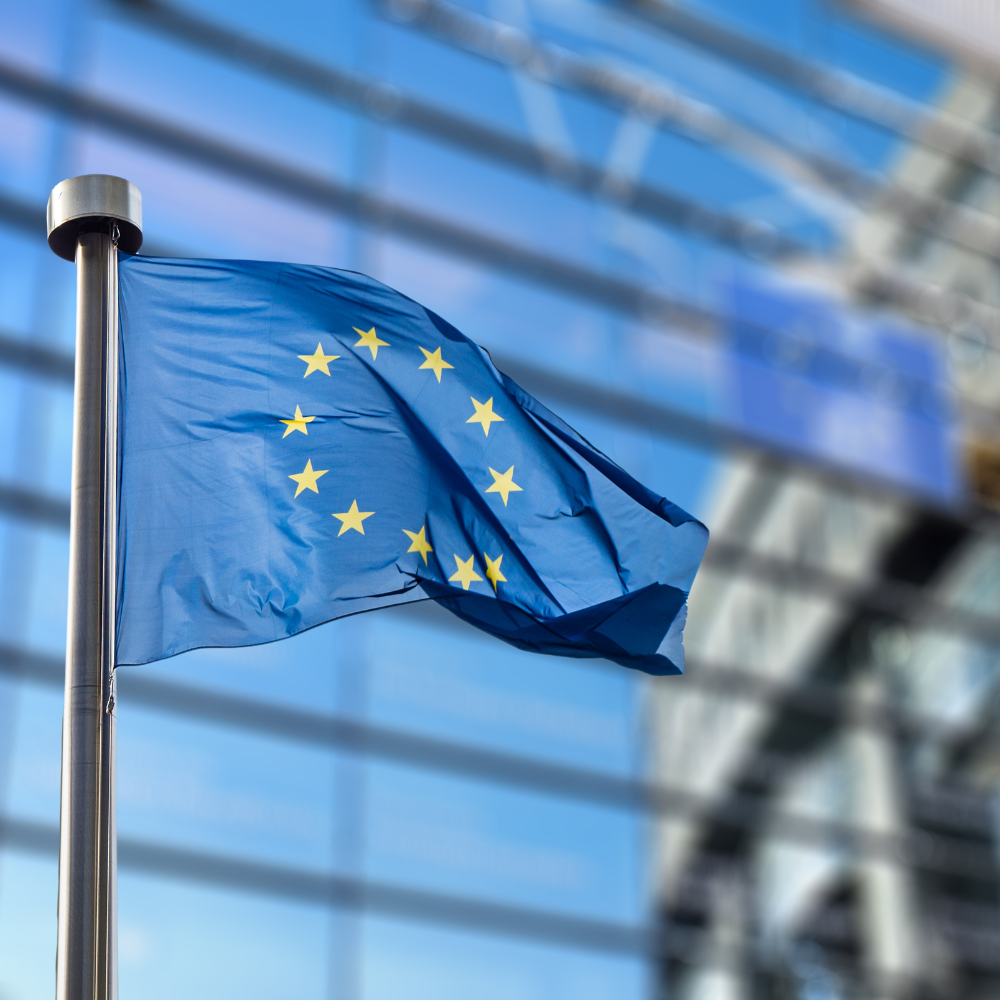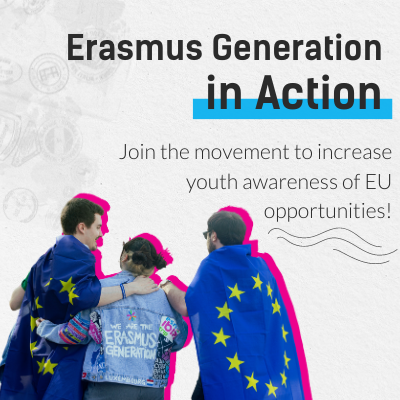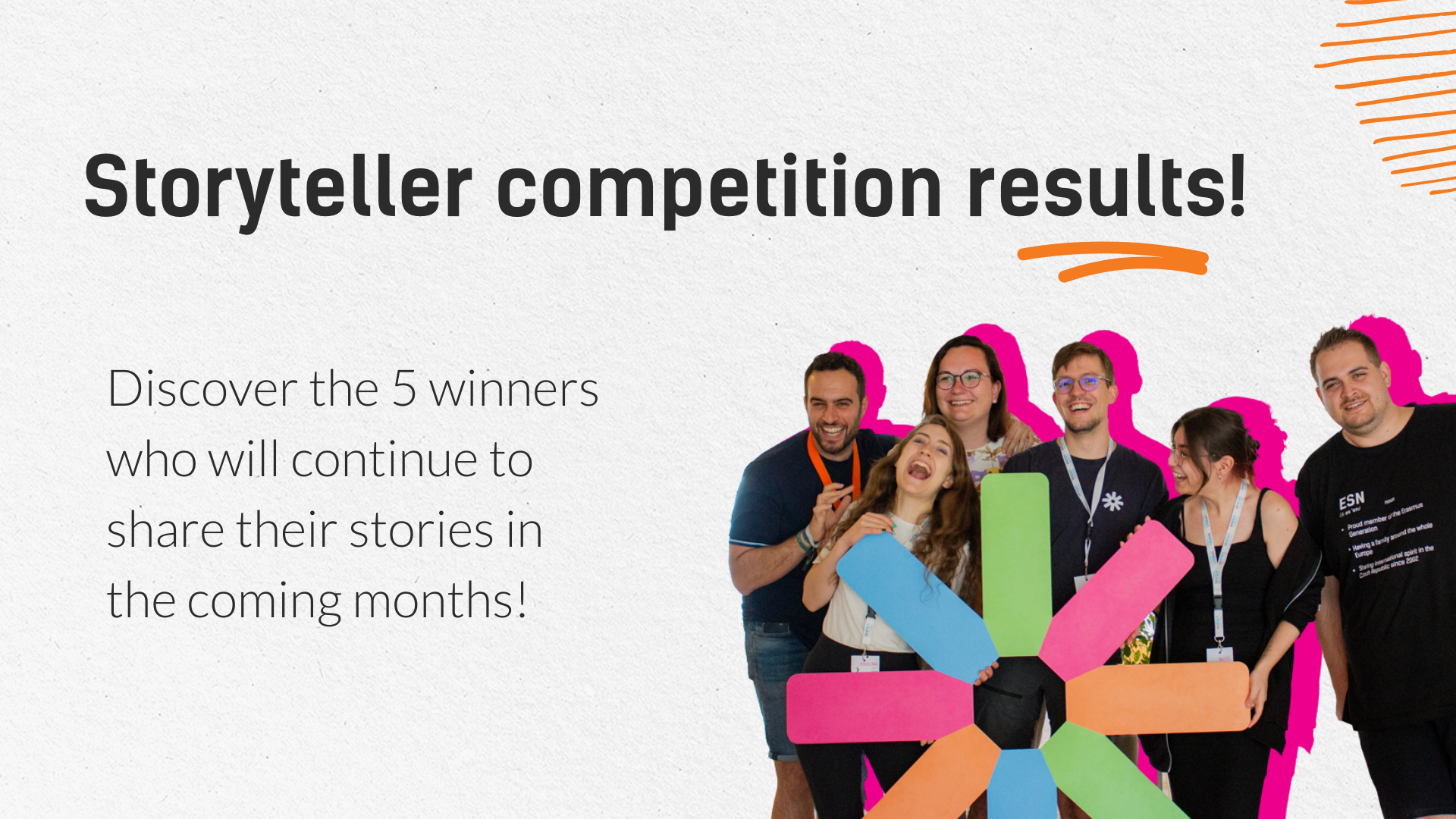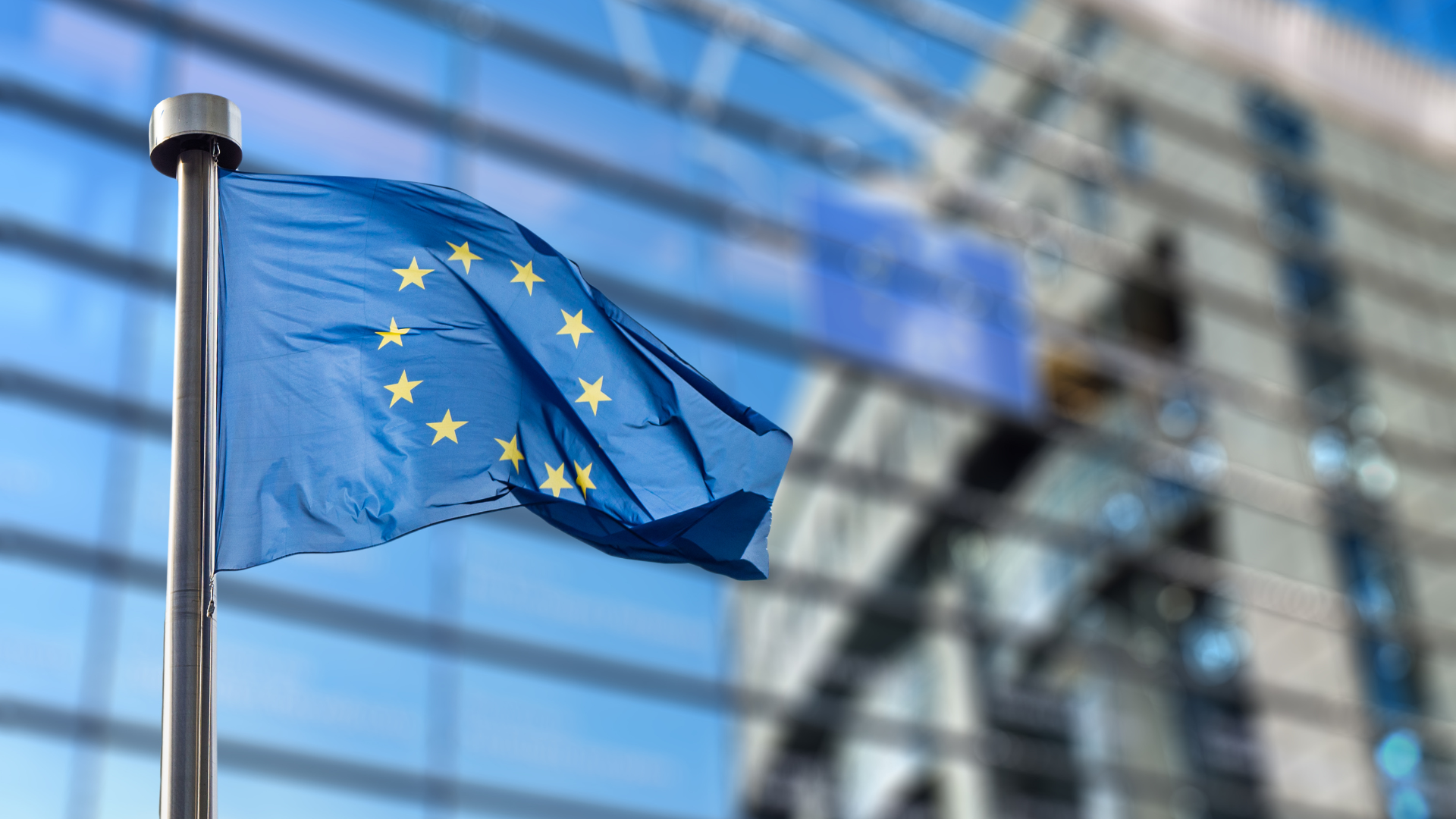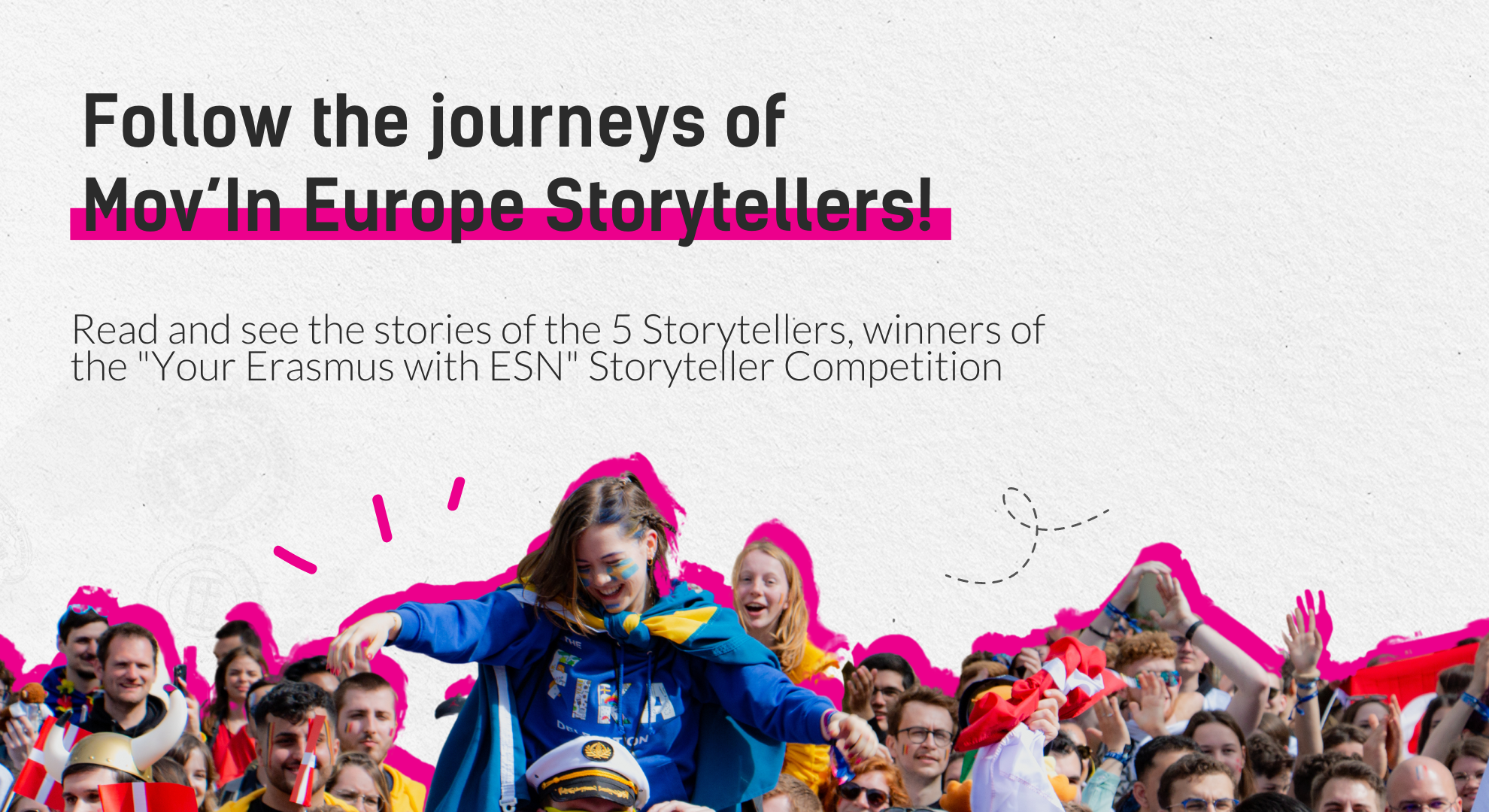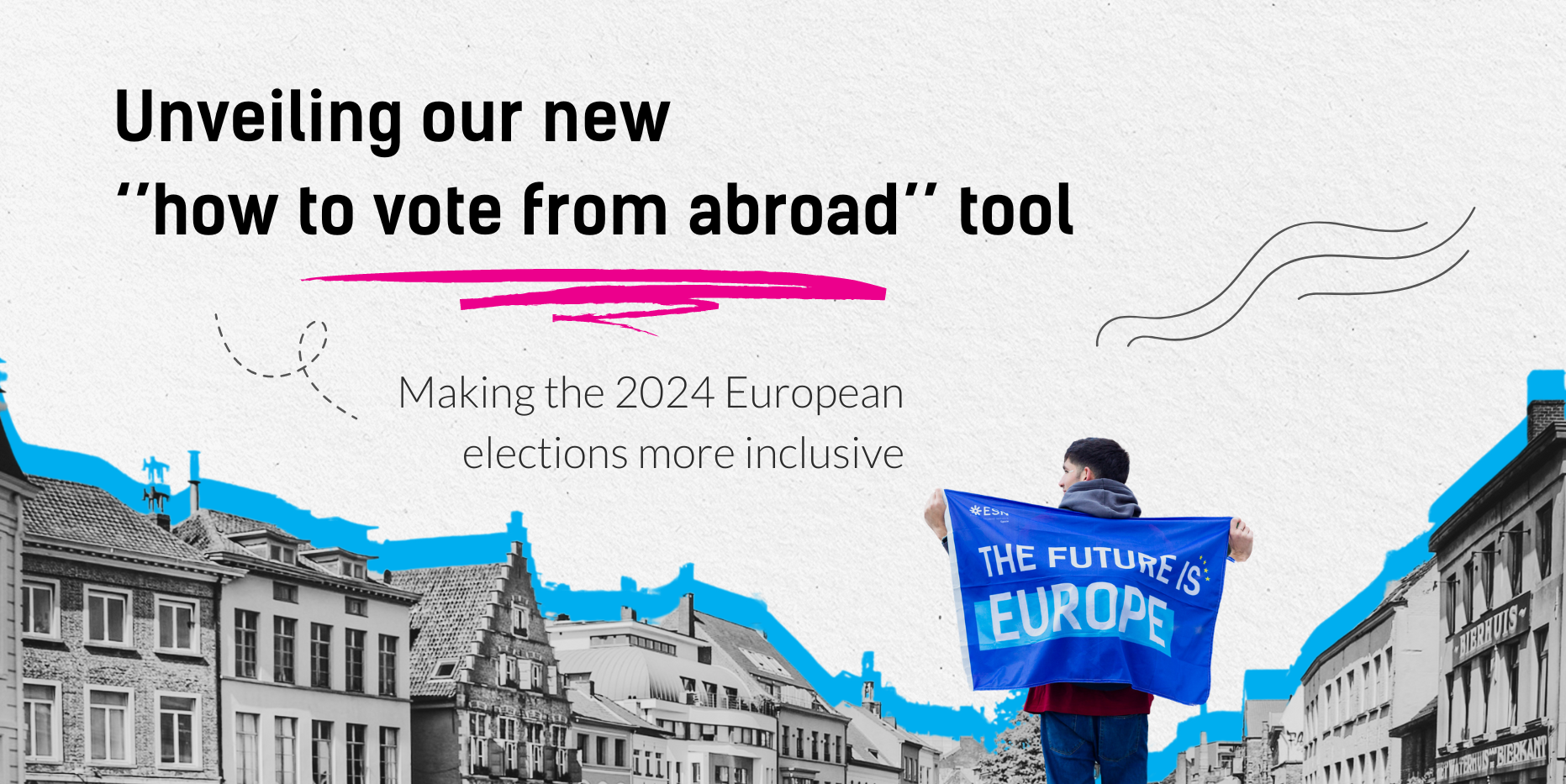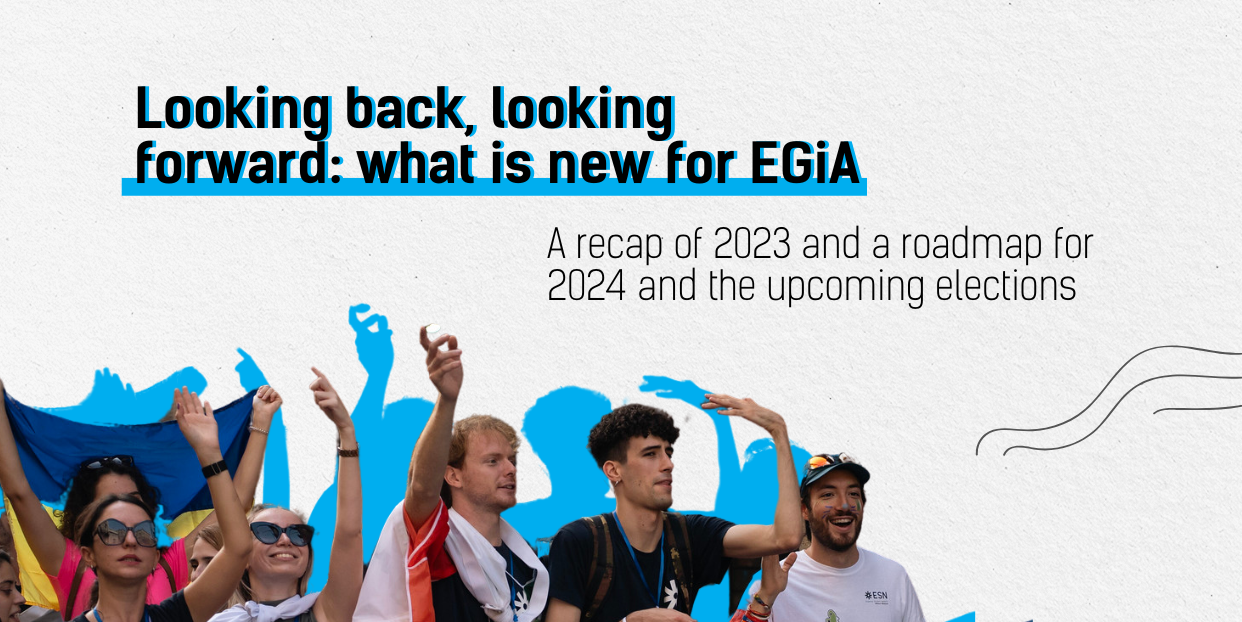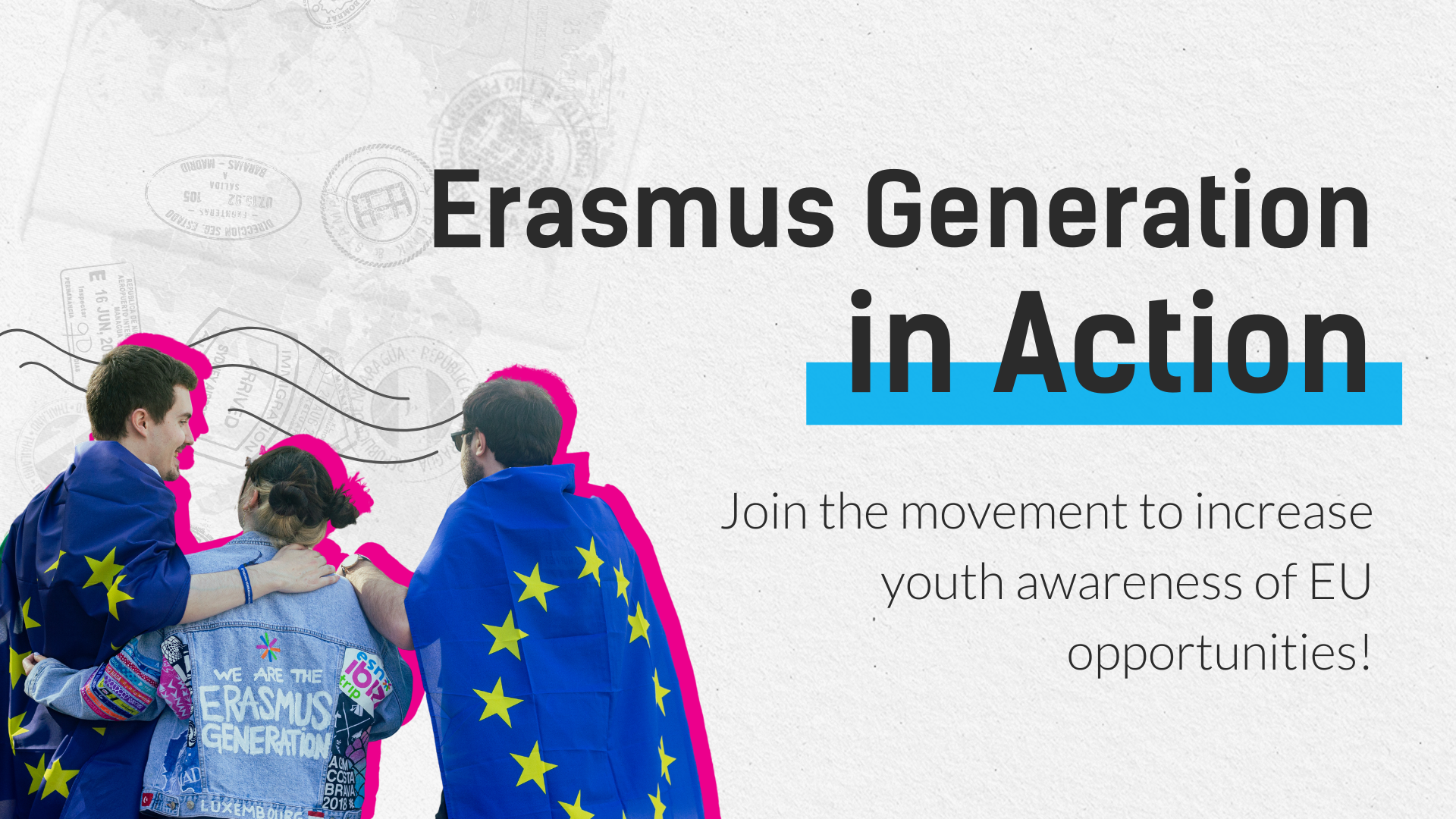
Erasmus Generation in Action: ESN launches flagship initiative for the European Elections 2024
The project, co-funded by the European Parliament, will seek to mobilise young Europeans through international opportunities while focusing on awareness and access to citizen's rights.
About EGiA
The Erasmus Student Network (ESN) is excited to announce its new EU-funded project, the Erasmus Generation in Action (EGiA), supported by the Europan Parliament and aims to raise awareness about EU citizenship opportunities and foster active citizenship among European youth. ESN is thrilled to be leading this ambitious project, which will include impactful actions in 18 Member States and a total of 163 activities, 80 of which will be published at together.eu. With an expected average of 50 participants per activity, EGiA is set to engage a significant number of young Europeans in discussions about their role as active citizens.
Additionally, the project aims to attract 5000 new sign-ups at together.eu, and reach 2 million people with its outreach activities. Furthermore, 170 change-makers will be trained in capacity-building activities, and these change-makers will go on to organise 163 activities, making a significant impact on active citizenship among European youth. This project is a major step forward in ESN's mission to promote active citizenship among European youth, and we are excited to see the impact it will have.
EGiA is a project composed of 4 phases with a planned duration of 19 months (until summer 2024), focused on raising awareness among European youth about the opportunities and benefits that the European Union offers to them, as well as the mobility-related rights of citizens. Erasmus Generation in Action is led by Erasmus Student Network International, in cooperation with ESN’s National Organisations from Austria, Belgium, Bulgaria, Croatia, Czech Republic, Denmark, Finland, France, Germany, Greece, Hungary, Ireland, Italy, Poland, Portugal, Romania, Slovakia, Spain, Sweden, and The Netherlands for the EU countries and Albania, Armenia, Turkey, Switzerland, and Georgia for the non-EU countries.
Zooming in on the EGiA phases
In Phase 1, we will conduct a needs assessment on EU opportunities for young people. This includes desk research on EU opportunities, accessibility, and reasons for low uptake, as well as ways for youth to access their citizenship and social rights. We will also hold 40 local dialogues with 800 youth on barriers to EU opportunities and research voting procedures for all EU countries for voting from abroad and accessing other rights from abroad in coordination with national organisations. The research will focus on youth concerns about voting rights and accessibility for the 2024 elections, including specific fact sheets for each country.
In Phase 2, we will empower the Erasmus Generation to become changemakers in Europe. This includes a manual for onsite activities for the academic year 2023-2024, two-track training for local and national volunteers, and capacity-building events in Italy, Spain, Poland, and Belgium. Changemakers will be involved in the 3 communication campaigns of the project.
In Phase 3, we will focus on the Erasmus Generation as active citizens in the European Elections. This includes an online voting platform and resources for voting from abroad, outreach activities to promote voting and EU benefits in 17 EU languages, and communication campaigns promoting voting and EU benefits, with a target of reaching 2 million people.
Phase 4 is a horizontal one. Throughout the project, the together.eu portal will be promoted, reporting on campaigns and events at the EU and national level, and providing detailed information on how to vote abroad. With each phase building on the previous one, the EGiA project is set to make a lasting impact on promoting active citizenship and EU opportunities among European youth.

What makes EGiA unique?
The main objective of EGiA is that through the Erasmus Generation, all the existing opportunities in the European Union for young people are made known, starting from the point of reference in which the causes of young people's lack of knowledge of the European Union must be identified. By learning about these opportunities and benefits, young people will also learn about the impact of their active participation in European citizenship, encouraging them to promote it and advocate for their rights as Europeans.
A continuing journey
ESN has been a leader in promoting civic participation and active citizenship among European youth and EGiA represents an important milestone in a continuous journey. In the 2014 European Elections, only 28% of people aged 18-24 voted. Despite the overall turnout of young voters, ESN's Erasmus Voting Assessment has proven that mobile youth was 3 times more likely to vote. In 2019, ESN conducted the research “ESNsurvey 2019 - Active citizenship and student exchange in light of the European elections” to understand the attitudes and behaviours of the European youth, particularly the Erasmus Generation, towards voting in the European elections.
Through our online campaign, promoting participation in elections and the ESNsurvey, we managed to reach 3,800,243 people and helped increase the overall turnout of young people at the European elections to 50.6%, the highest since 1994. ESN's research findings have been shared with key stakeholders and decision-makers in the European Parliament, and continue to inform our efforts to promote active citizenship and voting among European youth.
ESN has also worked in the promotion of the together.eu platform and its predecessors thistimeimvoting.eu, the non-partisan initiative of the European Parliament encouraging democratic participation in the EU. ESN succeeded in sending the most registered participants on the portal from all the organisations involved in the 2019's promotion activities proving the strength of our voice in this journey to increase active citizenship while making an impact.
ESNsurvey results and its impact on the EGiA project
Last December, the Erasmus Student Network released its 14th ESNsurvey report which collected key data on young people who have undertaken mobility within the European Union. Based on more than 10,000 responses, some of the results of this study are very relevant to the EGiA project. Some of the results obtained were:
- Most students want to have an international experience during their studies.
- Mobility increases awareness and interest in the environment, climate change, human rights, and international conflicts.
- Frequent reasons for going on mobility include experiencing different learning environments, living abroad, improving a language, or enhancing their professional perspective, among others.
- Most students are clearer about what they want to do in the future after mobility and a large proportion of students say that the Erasmus+ programme is beneficial for their job search.
2019 ESNsurvey zoomed in specifically on the context of the EP elections and also showed results that are still more relevant than ever in light of EGiA's goals:
- Students with an exchange experience are far more engaged in civil society organisations than the average European youth.
- 30% of respondents feel very or quite informed about the European Parliament's work.
- Students who are on exchange vote less due to barriers that they encounter to voting while abroad.
- Erasmus+ Alumni have higher interest and are more likely to vote in European elections than the European average.
- EU students with an exchange experience wish for more rights as EU citizens and for more European civic education in schools.
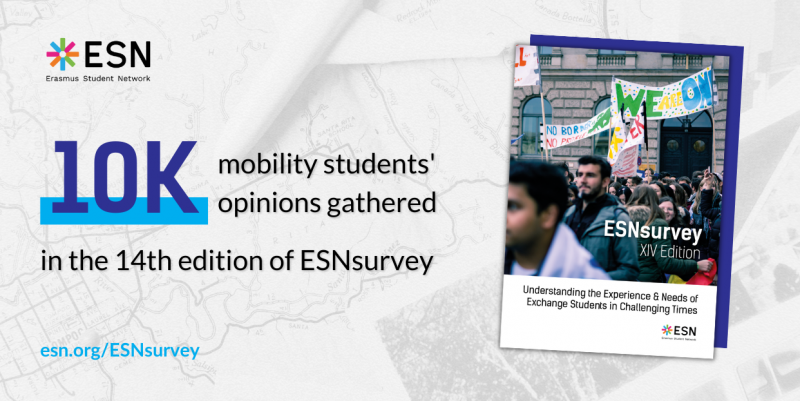
In addition to the ESNsurvey - 14th Edition, there are other influential results. These include the fact that only 50% of young people across Europe are aware of the Erasmus+ programme according to the Youth and Democracy in the European Year of Youth report and that those who have done an Exchange are the most likely to vote in elections.
All these findings, along with others from numerous studies, are relevant to Erasmus Generation in Action as they demonstrate the power and impact of living abroad as a young person and the great potential that the EGiA project is going to have to foster active citizenship and awareness of EU opportunities for European youth.
Access to international opportunities allows young Europeans to experience Europe firsthand, helping them to become engaged citizens who are committed to democratic participation. Through our EGiA project, ESN will seek to widen access to these opportunities by understanding better the barriers young people face and raise awareness about their rights. We are convinced that this approach will not only contribute to mobilising young people to vote in the EP elections, but also to be more involved as citizens in general. - Juan Rayón González, President of the Erasmus Student Network.
For any questions, do not hesitate to contact us. To learn more about the project and European Union citizenship opportunities, register for the ESN (Erasmus Students Network) newsletter and visit erasmusgeneration.org where you will soon find more information related to Erasmus Generation in Action.
- Date: 20 July 2023




